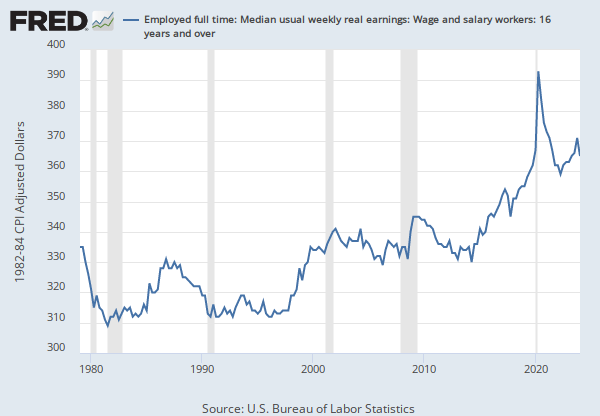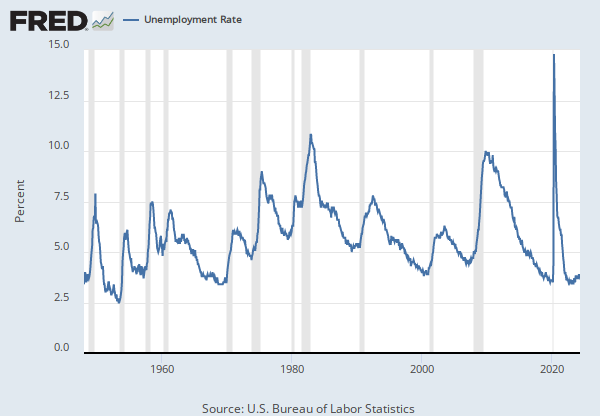Federal Reserve Economic Data
- Release Calendar
- FRED Tools
- FRED News
- FRED Blog
- About FRED
Data in this graph are copyrighted. Please review the copyright information in the series notes before sharing.
Notes
Source: National Bureau of Economic Research
Release: NBER Macrohistory Database
Units: Index 1913=100, Not Seasonally Adjusted
Frequency: Annual
Notes:
Series Is Presented Here As Four Variables--(1)--Original Data, 1820-1909 (2)--Original Data, 1910-1920 (3)--Original Data, 1919-1946 (4)--Original Data, 1938-1949. This Index Is Based On Weekly Earnings. The Sources Vary As Follows: Falkner'S Report Covers All Industries; Burgess Deals Only With Teachers; The Department Of Agriculture Covers Farm Wages; Douglas Covers All Industries, Including Farming. Source: 1820-1839: A.H. Hanson, American Economic Review, March 1925; 1840-1865: R.P. Falkner, Aldrich Report, And W.R. Burgess, Trends Of School Costs; 1866-1889: Falkner, Burgess, And U.S. Department Of Agriculture; 1890-1909: L.P. Ayres, Prospects For Building Construction In American Cities, And P.H. Douglas, American Economic Review, March 1926, And Burgess.
This NBER data series a08061a appears on the NBER website in Chapter 8 at http://www.nber.org/databases/macrohistory/contents/chapter08.html.
NBER Indicator: a08061a
Suggested Citation:
National Bureau of Economic Research, Index of Composite Wages for United States [A0861AUSA324NNBR], retrieved from FRED, Federal Reserve Bank of St. Louis; https://fred.stlouisfed.org/series/A0861AUSA324NNBR, .
Release Tables
Related Data and Content
Data Suggestions Based On Your Search
Content Suggestions
Other Formats
Related Categories
Releases
Tags
Permalink/Embed
modal open, choose link customization options
Select automatic updates to the data or a static time frame. All data are subject to revision.











